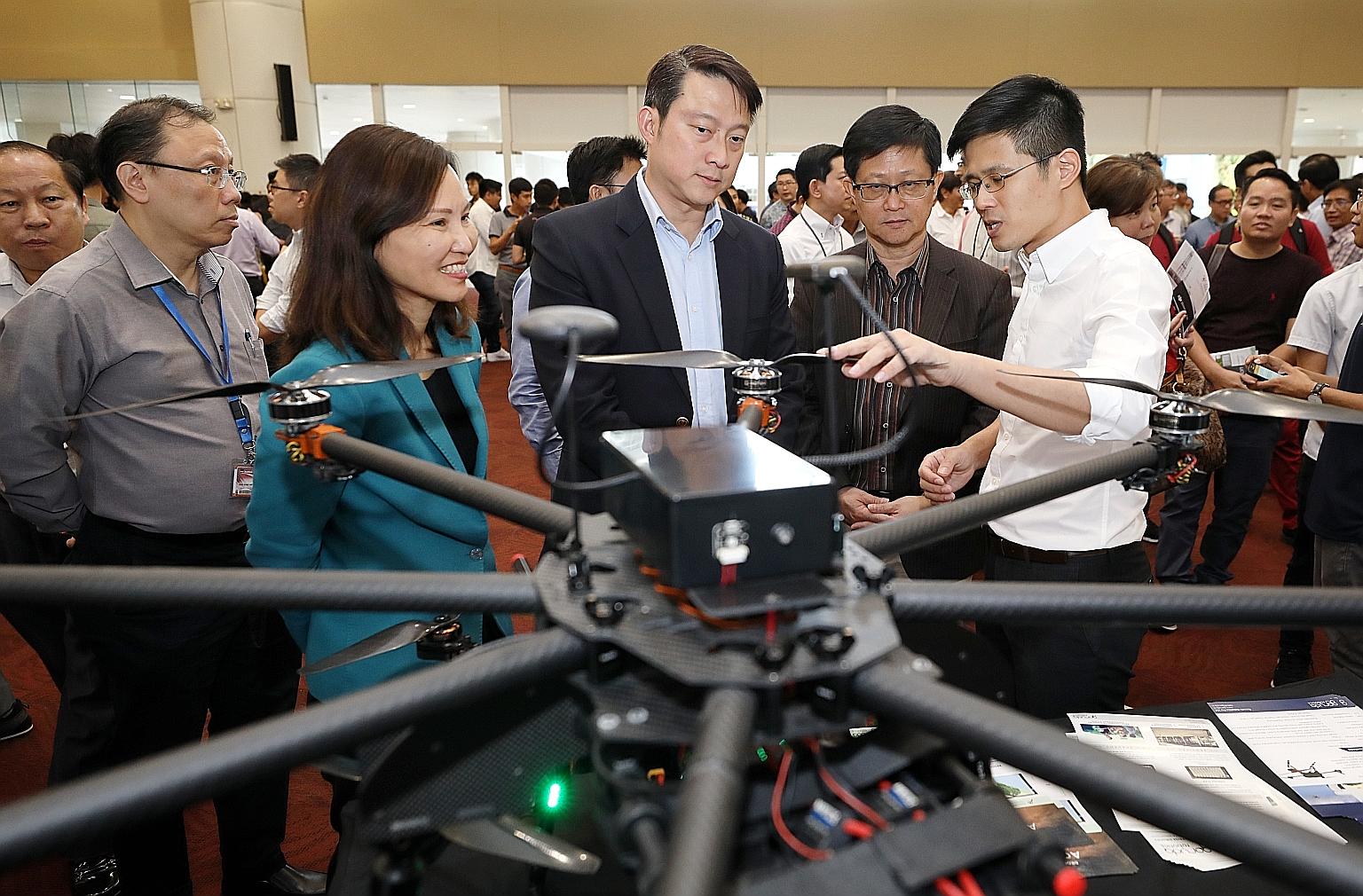In Singapore, tightened laws on drone use still under review
Sign up now: Get ST's newsletters delivered to your inbox

Garuda Robotics chief executive Mark Yong briefing Senior Minister of State for Transport and Health Lam Pin Min (centre), ITE CEO, Ms Low Khah Gek, and Science Centre Singapore CEO, Associate Professor Lim Tit Meng, at the inaugural Drone Technology for Urban Solutions conference yesterday.
ST PHOTO: GAVIN FOO
Singapore's drone regulations are being beefed up. Changes proposed by the Civil Aviation Authority of Singapore (CAAS) last April and which are still being reviewed include a compulsory online training programme, a pilot licensing scheme, as well as stricter requirements such as partial or full certification for heavier unmanned aircraft of more than 25kg, which presents a greater safety risk.
CAAS head of unmanned aircraft systems Melvin Wong said yesterday: "With the technological advancements in unmanned aircraft over the past four years and given its increasing popularity, we felt it was timely to review and enhance the current regulatory framework."
He was speaking at the inaugural Drone Technology for Urban Solutions conference at the Institute of Technical Education (ITE) College Central.
The use of drones has again come under scrutiny, just a month after more than 1,000 flights were forced to be diverted or cancelled last December after drones were spotted around Gatwick Airport, Britain's second-largest airport, with 140,000 people affected.
On Tuesday, a pair of drones spotted near Newark airport in the United States halted traffic at the second-largest airport in the New York metropolitan area.
Existing Singapore regulations ban the flying drones within 5km of airports or military airbases, or at altitudes above 200 feet (about 60m), without a permit.
Those found guilty face a fine of up to $20,000 or up to 12 months in jail, or both.
The Republic of Singapore Air Force has several weapons at its disposal, including a jammer gun, which emits signals that can jam the control signals of drones, as well as a drone catcher system, which uses a net to catch them.
In Parliament recently, Senior Minister of State for Transport and Health Lam Pin Min also announced that CAAS plans to develop a system to monitor unmanned aircraft. It will allow CAAS to check if individual drones are operating under a valid permit, and issue alerts to pilots who fall foul of regulations.
Laws, however, must go alongside educating the growing base of drone users on the need to follow regulations for safety's sake, industry players said.
"If you told your neighbour that you were planning on buying a plane and flying it around your estate, they would probably call the police," said Mr Mark Yong, chief executive of drone flight management software firm Garuda Robotics.
"But if you told them you were buying a drone to do the same thing, they might just ask if they can join you, since they don't understand the risks."



